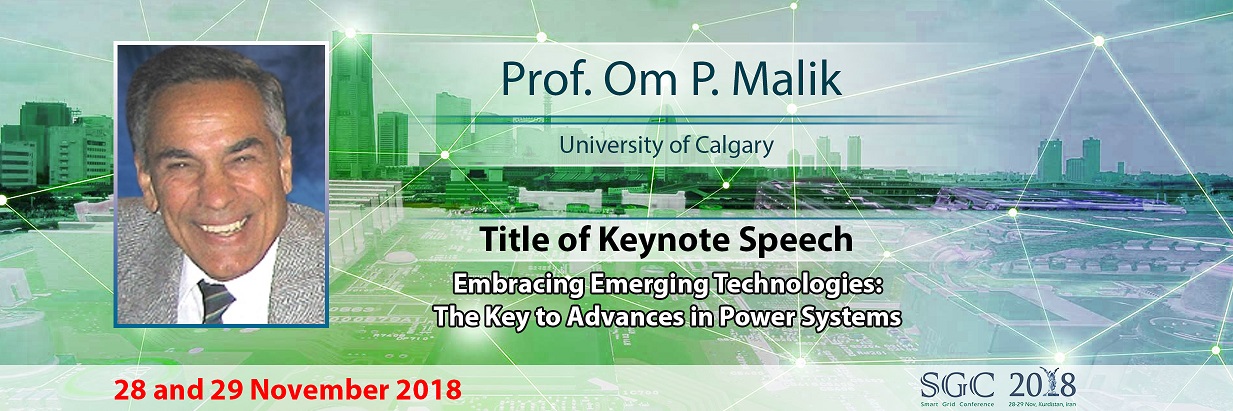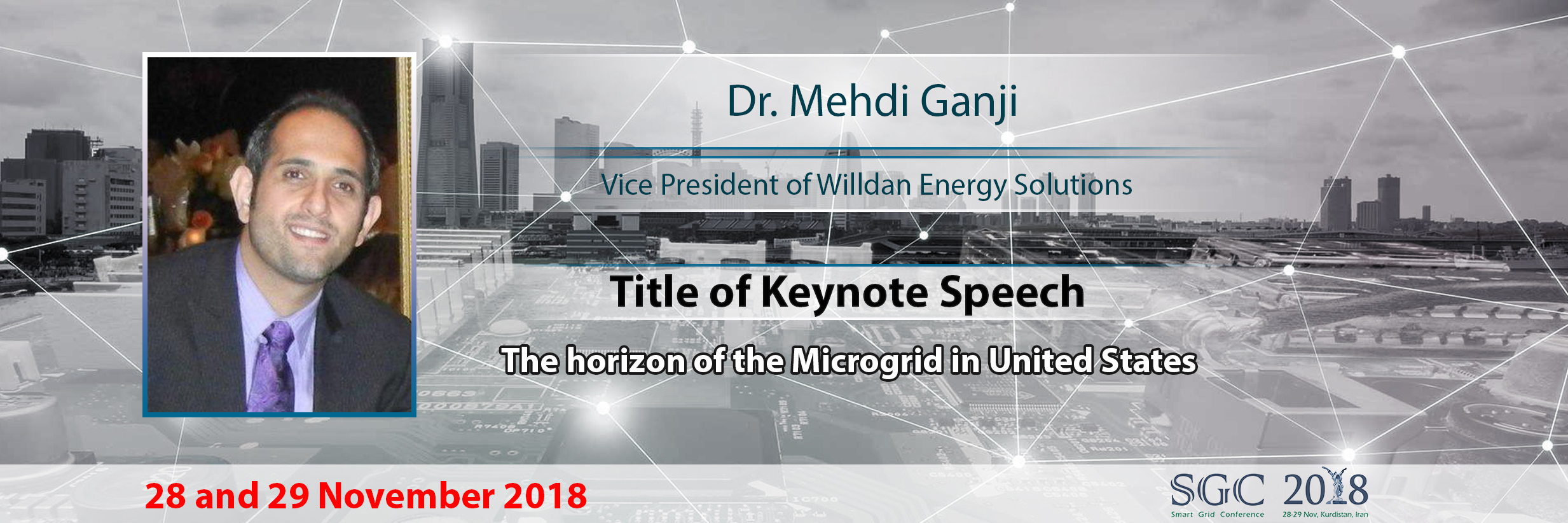Biography:
Frede Blaabjerg (S’86–M’88–SM’97–F’03) was with ABB-Scandia, Randers, Denmark, from 1987 to 1988. From 1988 to 1992, he got the PhD degree in Electrical Engineering at Aalborg University in 1995. He became an Assistant Professor in 1992, an Associate Professor in 1996, and a Full Professor of power electronics and drives in 1998. From 2017 he became a Villum Investigator.
His current research interests include power electronics and its applications such as in wind turbines, PV systems, reliability, harmonics and adjustable speed drives. He has published more than 500 journal papers in the fields of power electronics and its applications. He is the co-author of two monographs and editor of 7 books in power electronics and its applications.
He has received 24 IEEE Prize Paper Awards, the IEEE PELS Distinguished Service Award in 2009, the EPE-PEMC Council Award in 2010, the IEEE William E. Newell Power Electronics Award 2014 and the Villum Kann Rasmussen Research Award 2014. He was the Editor-in-Chief of the IEEE TRANSACTIONS ON POWER ELECTRONICS from 2006 to 2012. He has been Distinguished Lecturer for the IEEE Power Electronics Society from 2005 to 2007 and for the IEEE Industry Applications Society from 2010 to 2011 as well as 2017 to 2018. In 2018 he is President Elect of IEEE Power Electronics Society.
He is nominated in 2014, 2015, 2016 and 2017 by Thomson Reuters to be between the most 250 cited researchers in Engineering in the world. In 2017 he became Honoris Causa at University Politehnica Timisoara (UPT), Romania.
Abstract (Remote): The energy paradigms in many countries (e.g., Germany and Denmark) have experienced a significant change from fossil-based resources to clean renewables (e.g., wind turbines and photovoltaics) in the past few decades. The scenario of highly penetrated renewables is going to be further enhanced– Denmark expects to be 100 percent fossil-free by 2050.
Consequently, it is required that the production, distribution and use of the energy should be as technologically efficient as possible and incentives to save energy at the end-user should also be strengthened. In order to realize the transition smoothly and effectively, energy conversion systems, currently based on power electronics technology, will again play an essential role in this energy paradigm shift. Using highly efficient power electronics in power generation, power transmission/distribution and end-user application, together with advanced control solutions, can pave the way for renewable energies.
In light of this, some of the most emerging renewable energies — , e.g., wind energy and photovoltaic, which by means of power electronics are changing character as a major part in the electricity generation —, are explored in this speech. Issues like technology development, implementation, power converter technologies, control of the systems, and synchronization are addressed. Special focuses are paid on the future trends in power electronics for those systems like how to lower the cost of energy and to develop emerging power devices and better reliability tool.

Life Fellow of IEEE
Biography: Professor Om P. Malik has done pioneering work in the development of adaptive and artificial intelligence based controllers for application in electric power systems over the past 40 years. After extensive testing in the laboratory and in actual power systems, these controllers are now employed on large generating units.
He has published over 730 papers including over 360 papers in international Journals such as IEEE Transactions and IET (formerly IEE) Proceedings. He is the coauthor of two books, (i) Distribution Systems and (ii) Power System Stability.
Professor Malik graduated in 1952 from Delhi Polytechnic, India. After working for nine years in electric utilities in India, he returned to academia and obtained a Master’s Degree from Roorkee University, India in 1962, a Ph.D. from London University and a DIC from the Imperial College, London in 1965.
He was teaching and doing research in Canada from 1966 to 1997 and continues to do research as Professor Emeritus at the University of Calgary, Canada. Over 100, including 46 Ph.D., students have completed their graduate studies under his supervision.
Om Malik has provided volunteer service to a number of non-technical and technical organizations including IEEE at the Section, Council, Region and IEEE corporate level for close to 50 years, and International Federation of Automatic Control. He was Director, IEEE Region 7 and President, IEEE Canada, during 2010-11, and President, Engineering Institute of Canada, from 2014 to 2016. He is also actively involved in the IEEE Power and Energy Society.
Professor Malik is a Life Fellow of IEEE, and a Fellow of IET, the Engineering Institute of Canada, Canadian Academy of Engineering, Engineers Canada, Geophysicists Canada (Hon) and World Innovation Foundation. He is a registered Professional Engineer in the Provinces of Alberta and Ontario, Canada, and has received many awards from IEEE, EIC, APEGGA and the University of Calgary.
Abstract:
Starting from very humble beginnings in 1882, energy in the form of electric energy has become indispensable in the 21st. century. Its use has infiltrated every aspect of human activity, and it will be no exaggeration to say in the context of the present world that, if electricity were not available, every aspect of human activity will be adversely affected, if not come to a stop.
Keeping pace with the continued increase in the use and thus the demand of energy in the form of electrical energy has been accomplished by continued developments in power systems. This has led to big evolution in the development of power systems as power systems engineers have always kept pace by embracing new enabling technologies as they developed. Power systems still continue to evolve as the demand for electricity continues to grow.
After a brief review of the progress in power systems over the past 135 years, a quick discussion of the current status of the power system technology is provided.
With the power systems continuing to grow, more advances are imminent as is evident from the current buzz around the ‘smart grid’ concept. Areas that need more attention and are expected to draw significant attention over the near future include integration of advanced communications, information technologies, control and other enabling technologies. The way forward in the evolution of future power systems into smarter grids is outlined.

Prof. Dr. eng. Pavol Bauer
Delft University of Technology
Pavol Bauer is currently a full Professor with the Department of Electrical Sustainable Energy of Delft University of Technology and head of DC Systems, Energy Conversion and Storage group. He received Masters in Electrical Engineering at the Technical University of Kosice (‘85), Ph.D. from Delft University of Technology (’95) and title prof. from the president of Czech Republic at the Brno University of Technology (2008) and Delft University of Technology (2016). From 2002 to 2003 he was working partially at KEMA (DNV GL, Arnhem) on different projects related to power electronics applications in power systems. He published over 100 journal and over 350 conference papers in his field (with H factor Google scholar 36, Web of science 24), he is an author or co-author of 8 books, holds 6 international patents and organized several tutorials at the international conferences. He has worked on many projects for industry concerning wind and wave energy, power electronic applications for power systems such as Smarttrafo; HVDC systems, projects for smart cities such as PV charging of electric vehicles, PV and storage integration, contactless charging; and he participated in several Leonardo da Vinci and H2020 EU projects as project partner (ELINA, INETELE, E-Pragmatic, Smart Charging, Metrology for Inductive Charging, Trolley 2.0) and coordinator (PEMCWebLab.com-Edipe, SustEner, Eranet DCMICRO). He is a Senior Member of the IEEE (’97), former chairman of Benelux IEEE Joint Industry Applications Society, Power Electronics and Power Engineering Society chapter, chairman of the Power Electronics and Motion Control (PEMC) council, member of the Executive Committee of European Power Electronics Association (EPE) and also member of international steering committee at numerous conferences.
Title: Electric Vehicles Charging: Technology Challenges (Remote)
Electric vehicles will play an importnat role for energy trasition. Charging infrastructure for electric vehicles will be the key factor for ensuring a smooth transition to electric mobility a spart of energy transition. It is here, that five technologies will play a vital role in the EV charging infrastructure: smart charging (including vehicle-to-grid V2G technology), charging of EVs from photovoltaic panels, (ultra)fast charging, contactless charging and on-road charging of EVs. All these technologies will be adressed in the keynote presentation.

Dr. Mehdi Ganji
Willdan Energy Solutions
Mehdi Ganji leads Willdan’s Smart Cities Team, expanding the knowledge of smart grid technology across the company—with a focus on resiliency, reliability, cost effectiveness and optimization of the power grid. Dr. Ganji has been the Principal Investigator (PI) of a number of microgrid projects in the State of New York (NY PRIZE), Massachusetts, and California. Currently, he is leading the United States Trade and Development Agency (USTDA) Smart Campus project in Turkey. As an executive consultant to Galvin Center for Electricity Innovation at the Illinois Institute of Technology in Chicago, he has worked on more than 30 smart grid research and implementation projects focused on the development of microgrid planning and operation applications for different market segments, and identification of the various microgrid business models. His areas of interest include energy markets, data analytics and its role in Smart Cities applications, electric vehicle integration, transactive energy, and energy management systems. He has been actively engaged in several technical and industrial working groups such as IEEE 2030.7&8 and the State of California Microgrid Commercialization Roadmap.
“The most effective path to microgrid commercialization is the development of a microgrid Ecosystem rather than a microgrid system, which not only hosts the technical experts, but also echoes the voices of the financial, regulatory, emerging technology developers, and more importantly, different market segment leaders.”
Title: The horizon of the Microgrid in United States
Numbers of microgrids have become online within the recent decade. However, the benefits of this system and its deployment and operation challenges at some of the untapped market segments such as airports, hospitals, prisons, food processing facilities, and heavy-duty industrial facilities such as steel manufacturing are unknown. Dr. Ganji will talk about the existing microgrid types in the United States, their primary assets, and business models. He will also review a standard framework to develop microgrid in the United States. Finally, a list of metrics required to evaluate the performance of microgrid will be discussed.